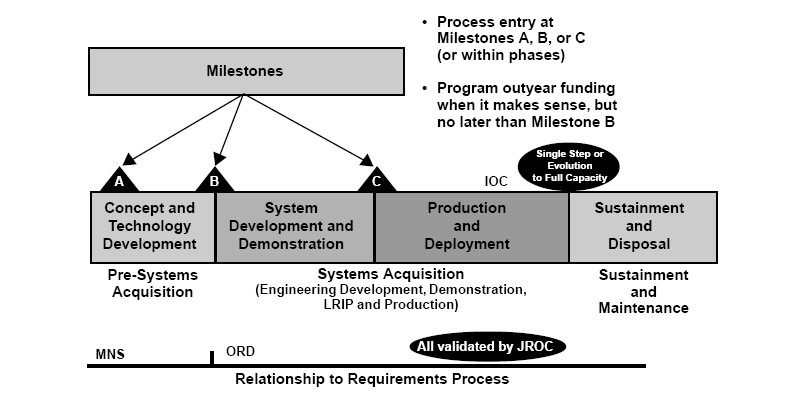|
Federal Acquisition Regulations
The Federal Acquisition Regulation (FAR) is the principal set of rules regarding Government procurement in the United States,. and is codified at Chapter 1 of Title 48 of the Code of Federal Regulations, . It covers many of the contracts issued by the US military and NASA, as well as US civilian federal agencies. The largest single part of the FAR is Part 52, which contains standard solicitation provisions and contract clauses. Solicitation provisions are certification requirements, notices, and instructions directed at firms that might be interested in competing for a specific contract. These provisions and clauses are of six types: (i) required solicitation provisions; (ii) required-when-applicable solicitation provisions; (iii) optional solicitation provisions; (iv) required contract clauses; (v) required-when-applicable contract clauses; and (vi) optional contract clauses." If the FAR requires that a clause be included in a government contract, but that clause is omitted, case ... [...More Info...] [...Related Items...] OR: [Wikipedia] [Google] [Baidu] |
Government Procurement In The United States
The processes of government procurement in the United States enable federal, state and local government bodies in the country to acquire goods, services (including construction), and interests in real property. In fiscal year 2019, the US Federal Government spent $597bn on contracts.Bloomberg GovernmentBGOV200: Federal Industry Leaders 2019 accessed 9 July 2020 The market for state, local, and education (SLED) contracts is thought to be worth $1.5 trillion. Contracts for federal government procurement usually involve appropriated funds spent on supplies, services, and interests in real property by and for the use of the Federal Government through purchase or lease, whether the supplies, services, or interests are already in existence or must be created, developed, demonstrated, and evaluated. Federal Government contracting has the same legal elements as contracting between private parties: a lawful purpose, competent contracting parties, an offer, an acceptance that complies with ... [...More Info...] [...Related Items...] OR: [Wikipedia] [Google] [Baidu] |
Performance Work Statement
A Performance work statement (or PWS) is used to summarize the work that needs to be done for a contract (e.g., with the U.S. Department of Defense). A PWS usually requires a scope, applicable documents, performance requirements/tasks, and contractor quality assurance Quality assurance (QA) is the term used in both manufacturing and service industries to describe the systematic efforts taken to ensure that the product(s) delivered to customer(s) meet with the contractual and other agreed upon performance, design ... for acquisition. References * https://www.atsc.army.mil/TADLP/content/pws/index.asp * https://dap.dau.mil/acquipedia/Pages/ArticleDetails.aspx?aid=488854b0-d8ee-4e32-aa3e-301d2ac8ffca Government procurement in the United States {{US-gov-stub ... [...More Info...] [...Related Items...] OR: [Wikipedia] [Google] [Baidu] |
IDIQ
In U.S. Federal government contracting, IDIQ is an abbreviation of the term indefinite delivery/indefinite quantity. This is a type of contract that provides for an indefinite quantity of supplies or services during a fixed period of time. The legal origin of IDIQ contracts is the Federal Acquisition Regulation (FAR) section 16.504(a) (). IDIQs are also sometimes called "Task Orders" or "Delivery Order Contracts." IDIQ contracts are a subtype of Indefinite Delivery Contract (IDC), which is a "vehicle that has been awarded to one or more vendors to facilitate the delivery of supply and service orders." Usage IDIQ contracts are most often used for on-call service contracts, Architect-Engineering (A-E) services, and job order contracting. Awards are usually for a specified number of base years with renewal options for additional years. These contracts typically do not exceed a total of five years in duration. The government places delivery orders (for supplies) or task orders (for ser ... [...More Info...] [...Related Items...] OR: [Wikipedia] [Google] [Baidu] |
Brand
A brand is a name, term, design, symbol or any other feature that distinguishes one seller's good or service from those of other sellers. Brands are used in business, marketing, and advertising for recognition and, importantly, to create and store value as brand equity for the object identified, to the benefit of the brand's customers, its owners and shareholders. Brand names are sometimes distinguished from generic or store brands. The practice of branding - in the original literal sense of marking by burning - is thought to have begun with the ancient Egyptians, who are known to have engaged in livestock branding as early as 2,700 BCE. Branding was used to differentiate one person's cattle from another's by means of a distinctive symbol burned into the animal's skin with a hot branding iron. If a person stole any of the cattle, anyone else who saw the symbol could deduce the actual owner. The term has been extended to mean a strategic personality for a product or c ... [...More Info...] [...Related Items...] OR: [Wikipedia] [Google] [Baidu] |
Federal Trade Secret Act
Federal or foederal (archaic) may refer to: Politics General *Federal monarchy, a federation of monarchies *Federation, or ''Federal state'' (federal system), a type of government characterized by both a central (federal) government and states or regional governments that are partially self-governing; a union of states * Federal republic, a federation which is a republic * Federalism, a political philosophy * Federalist, a political belief or member of a political grouping *Federalization, implementation of federalism Particular governments *Federal government of the United States **United States federal law **United States federal courts * Government of Argentina * Government of Australia *Government of Pakistan *Federal government of Brazil *Government of Canada *Government of India *Federal government of Mexico * Federal government of Nigeria * Government of Russia *Government of South Africa *Government of Philippines Other *''The Federalist Papers'', critical early arguments ... [...More Info...] [...Related Items...] OR: [Wikipedia] [Google] [Baidu] |
Mixed Funding , a person who is of multiple races
*
*
{{disambiguation ...
Mixed is the past tense of ''mix''. Mixed may refer to: * Mixed (United Kingdom ethnicity category), an ethnicity category that has been used by the United Kingdom's Office for National Statistics since the 1991 Census * ''Mixed'' (album), a compilation album of two avant-garde jazz sessions featuring performances by the Cecil Taylor Unit and the Roswell Rudd Sextet See also * Mix (other) * Mixed breed, an animal whose parents are from different breeds or species * Mixed ethnicity Mixed race people are people of more than one race or ethnicity. A variety of terms have been used both historically and presently for mixed race people in a variety of contexts, including ''multiethnic'', ''polyethnic'', occasionally ''bi-eth ... [...More Info...] [...Related Items...] OR: [Wikipedia] [Google] [Baidu] |
Armed Services Procurement Act
In the United States the Armed Services Procurement Act established the Armed Services Procurement Regulations (ASPR) which were in effect from 1948 to 1978. The first complete ASPR was published by the Department of Defense in 1959.Culver, C.M.,"Federal Government Procurement. An Uncharted Course through Turbulent Waters." National Contract Management Association (NCMA), 1984 See also * Federal Acquisition Regulation * Title 48 of the Code of Federal Regulations * Office of Federal Procurement Policy References Government procurement in the United States The processes of government procurement in the United States enable federal, state and local government bodies in the country to acquire goods, services (including construction), and interests in real property. In fiscal year 2019, the US Federal ... 1948 establishments in the United States 1978 disestablishments in the United States {{US-fed-statute-stub ... [...More Info...] [...Related Items...] OR: [Wikipedia] [Google] [Baidu] |
Competition In Contracting Act
The Competition in Contracting Act (CICA) of 1984, 41 U.S.C. 253, is United States legislation governing the hiring of contractors. It requires U.S. federal government agencies to arrange “full and open competition through the use of competitive procedures” in their procurement activities unless otherwise authorized by law. CICA was passed into law as a foundation for the Federal Acquisition Regulation (FAR) and to foster competition and reduce costs. The theory was that more competition for procurements would reduce costs and allow more small businesses to win Federal Government contracts. Under CICA all procurements must be competed as full and open (there are some exceptions found in FAR Part 6) so that any qualified company can submit an offer. The bidding procedure should take the form of sealed bidding, previously known as "formal advertising", solicited prior to 2001 through ''Commerce Business Daily''. History A version of the CICA was introduced in 1982 by Senators Wi ... [...More Info...] [...Related Items...] OR: [Wikipedia] [Google] [Baidu] |
Seller
Sales are activities related to selling or the number of goods sold in a given targeted time period. The delivery of a service for a cost is also considered a sale. The seller, or the provider of the goods or services, completes a sale in response to an acquisition, appropriation, requisition, or a direct interaction with the ''buyer'' at the point of sale. There is a passing of title (property or ownership) of the item, and the settlement of a price, in which agreement is reached on a price for which transfer of ownership of the item will occur. The ''seller'', not the purchaser, typically executes the sale and it may be completed prior to the obligation of payment. In the case of indirect interaction, a person who sells goods or service on behalf of the owner is known as a salesman or saleswoman or salesperson, but this often refers to someone selling goods in a store/shop, in which case other terms are also common, including ''salesclerk'', ''shop assistant'', and ''re ... [...More Info...] [...Related Items...] OR: [Wikipedia] [Google] [Baidu] |
US Access Board
The United States Access Board (also known as the Architectural and Transportation Barriers Compliance Board) is an independent agency of the United States government devoted to accessibility for people with disabilities. The Board was created in 1973 to ensure access to federally funded facilities. It develops and maintains design criteria for the built environment, transit vehicles, telecommunications equipment, and electronic and information technology. It also provides technical assistance and training on these requirements and on accessible design and continues to enforce accessibility standards that cover federally funded facilities. The Board is structured to function as a coordinating body among federal agencies and to directly represent the public, particularly people with disabilities. Half of its members are representatives from most of the federal departments. The other half are members of the public appointed by the U.S. President, a majority of whom must have a di ... [...More Info...] [...Related Items...] OR: [Wikipedia] [Google] [Baidu] |
Section 508
In 1998 the US Congress amended the Rehabilitation Act to require Federal agencies to make their electronic and information technology accessible to people with disabilities. Section 508 was enacted to eliminate barriers in information technology, to make available new opportunities for people with disabilities, and to encourage development of technologies that will help achieve these goals. The law applies to all Federal agencies when they develop, procure, maintain, or use electronic and information technology. Under Section 508 (), agencies must give employees with disabilities and members of the public access to information that is comparable to the access available to others. History Section 508 was originally added as an amendment to the ''Rehabilitation Act of 1973'' in 1986. The original section 508 dealt with electronic and information technologies, in recognition of the growth of this field. In 1997, The Federal Electronic and Information Technology Accessibility and ... [...More Info...] [...Related Items...] OR: [Wikipedia] [Google] [Baidu] |

.jpg)
